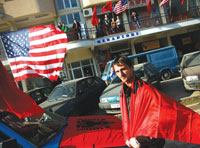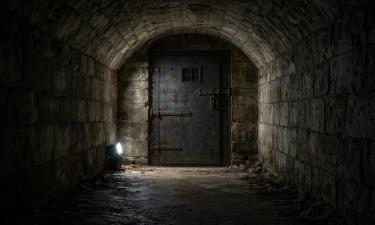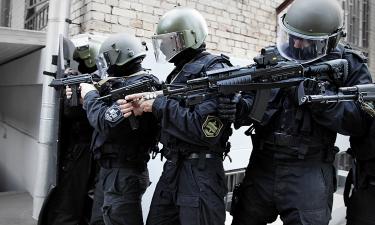Russia to use Kosovo against Europe and USA
On April 21 the UN Security Council discussed Kosovo question. As was predicted, no key decisions were held.

On the very same day Georgian president Michael Saakashvili asked the Western world for protection against Russia that brought down Georgian pilotless plane peacefully spying on the territory of Abkhazia.
However, the West doesn’t hurry to move its troops from Afghanistan and Iraq to help Georgia. The reason is clear: although the West and Russia never got on very well, the capacity of oil and gas that Russia possesses was always taken into consideration. The US couldn’t abandon these resources, even for the sake of Georgia. If we look back, we’ll see that during moments of tough confrontation between the US and the USSR, like during Suez crisis, the revolution in Hungary in 1956, Caribbean crisis of 1962 or ‘Prague Spring’ of 1968 the US always gave up to the USSR or its allies and never made it through to the key attack.
This time it’s going to be the same. Consider that even Great Britain that holds a staunch anti-Russian country, didn’t say anything more than: ‘We are concerned about the situation in Southern Caucasus. We need to carefully examine Georgia’s petition. We are to do it this week’. Jaap de Hoop Scheffer, the Secretary General of NATO, appealed to Russia with the request to give up Abkhazian and South Ossetian separatists support, saying he was ‘deeply concerned’.
Well, it is also deeply symbolic that this question will be discussed hand by hand with Kosovo conflict. This, on the one hand, will shadow the events in the Caucasus and, on the other hand, will once again underline that Kosovo conflict had consequences in the countries nearby.
Russian Minister of Foreign affairs Sergey Lavrov, however, warned the UN Security Council that giving Kosovo independence will lead to other nationalists struggling to separate and in the end will harm Europe. He even didn’t shut out the probability of UN breakdown.
Lavrov stated, though, that this process isn’t nonreversible. Everything that is required is open-mindedness and the desire to establish practical, not verbal interaction between the EU, Russia and the USA.
He in fact connected the situation in Kosovo, the BMDs setup in Europe and the question of Georgian and Ukrainian membership in NATO. Moscow can’t agree with neither of these decisions.
Can this be considered as an ultimatum? Not yet, although Lavrov said that the world can go back to Cold War in case such aggressive tactics form the West continues.
Russian tactics is surprisingly mild. Great Britain on our place would have recognized the independence of Abkhazia and South Ossetia, established friendly relations with all separatists that harm Europe, starting from Greenlandic Eskimos to the citizens of Portuguese Madeira. It would also shut the air area for NATO planes that head for Afghanistan. Today the US must realize: the Ukraine and Georgia inclusion in NATO equals to the start of war.
Translated by Lena Ksandinova
Subscribe to Pravda.Ru Telegram channel, Facebook, RSS!





